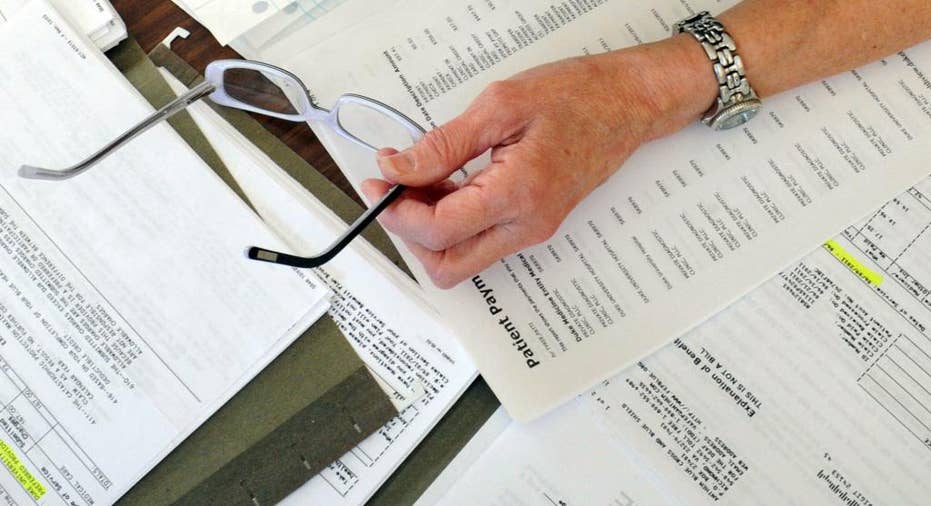Consider a second opinion on that medical bill

If a medical bill shows up, don't pay it right away. At least that's the advice of some experts who say you should closely review all your medical billing information for any errors first.
The American Medical Association estimates that 7.1 percent of bills paid by commercial health insurers contain errors, while others estimate errors are far more common than that.
HOW TO SPOT THEM: Start simply — look closely at any bills that show up.
Are the basics right? Simple clerical issues, such as a misspelled name can wreak havoc. Is your coinsurance reflected? Is the bill for treatments you actually received? Remedy, a company that helps work with clients on medical billing and other advocacy issues, has seen cases of men who were billed for pregnancy tests.
If you don't understand what you are looking at, ask for help, says Sara Taylor at Aon Hewitt. And she suggests verifying that what you are looking at is actually a bill, as many people cut a check when they receive any statement, even when they don't need to.
HOW THEY HAPPEN: Every bill has the potential for error — from a $20 copay to a six-figure stay in the ICU — says Remedy CEO Victor Echevarria.
It could happen at any stage — the patient could have provided incomplete information, the doctor's office may have entered the wrong billing code or the insurer may be working with incomplete data. There's also simple human error.
WHAT TO DO: You can often resolve an issue with a few phone calls to your insurer, provider or both.
Another suggestion is to get an itemized bill. Medical Billing Advocates of America says this allows you to see exactly what you are being charged for, as most facilities only send a summary bill that does not break down charges line by line. Look for duplicate charges and items and services you never received.
There are also some pre-emptive steps you can take: be aware of your own current plan policies. Sometimes consumers believe there is a mistake but find their plan coverage has changed or they are responsible for a deductible or out-of-network cost.
SEEK HELP: If you find yourself flummoxed, there are companies that will help you resolve medical billing issues such as Remedy and MBAA.
Aon Hewitt estimates that about 45 percent of large employers offer health advocate services to employees, typically free of charge. While this has been available for years, it is often underutilized in a billing situation and allows experts to lend a hand, Taylor said.



















